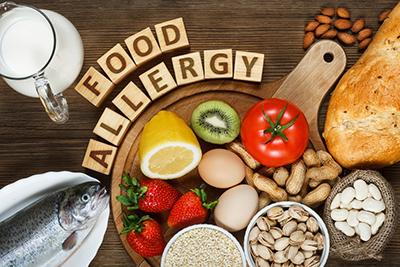
When you think of allergies, do you think about seasonal allergies like hay fever? Most people do, but there are many different allergies to many different things, including allergies to food and substances in your environment. Your allergist is an expert at allergy testing and treatment, so you can feel better.
There are some very common food substances, which can cause symptoms, even when they are a small ingredient of the food you eat. Peanuts are an excellent example. Peanuts are an ingredient in a wide variety of prepared dishes, and even a small amount can affect you. Other common food allergies include:
- Shellfish
- Eggs
- Dairy
- Wheat
- Soy
There are also some very potent environmental allergies. Most people don’t notice them, but if you are sensitive to environmental allergies, they can make you miserable. Some common environmental allergies are:
- Smoke
- Perfume
- Workplace chemicals
- Mold, spores, and dust mites
Exposure to food or environmental allergies can produce signs and symptoms like these:
- A skin rash
- Coughing and wheezing
- Nausea and vomiting
- Diarrhea or constipation
- Stomach bloating and gas
Food and environmental allergy testing can be performed using several different methods, including:
Skin testing–placing a small amount of substance just underneath your skin. If you develop a rash, irritation, redness, or swelling, you are allergic to the substance.
Challenge testing–you eat a small amount of food and wait to see if you react badly to it.
Blood testing–a blood sample is sent to a lab where it can be tested against different foods and substances.
After your allergist has determined what you are allergic to, it may be possible to avoid the substance. Cigarette smoke and perfume are examples of environmental allergies you can stay away from. It may also be possible to avoid foods you are allergic to. However, if the food is an ingredient in a meal, you may not know it’s there.
That’s why your allergist can provide you with medications to reduce the frequency and severity of your allergy attacks. Your allergist may recommend:
- Sublingual immunotherapy
- Allergy injections
- A rescue inhaler for an acute, severe reaction
To find out more about allergy testing, management and treatment of food and environmental allergies, call your allergist today.
